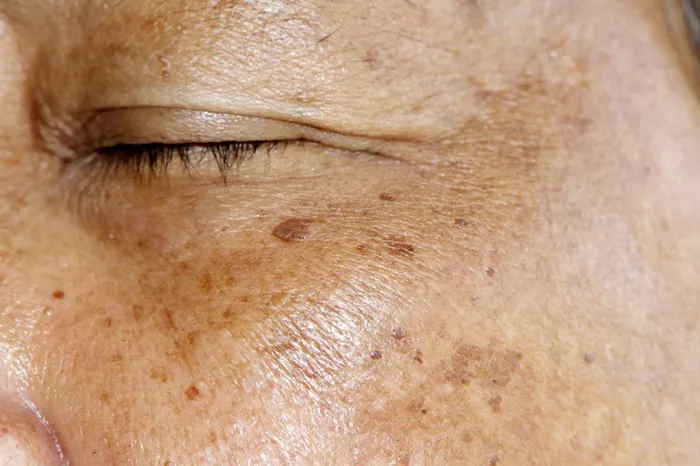Obsessive-Compulsive Disorder (OCD) is a mental health condition characterized by recurring, unwanted thoughts (obsessions) and repetitive behaviors (compulsions). These thoughts and behaviors can significantly interfere with daily activities and cause substantial distress. The severity of OCD thoughts can vary widely among individuals, but in severe cases, they can be profoundly debilitating. This article delves into the nature of OCD thoughts, their potential severity, and the impact they can have on individuals’ lives.
Understanding OCD Thoughts
OCD thoughts, or obsessions, are intrusive and unwanted ideas, images, or urges that cause significant anxiety or distress. These thoughts are not just excessive worries about real-life problems; they often involve themes that are irrational or out of proportion to the actual threat. Common themes include contamination, harm, symmetry, and forbidden thoughts.
Contamination Obsessions
Contamination obsessions involve an intense fear of germs, dirt, or other substances that are perceived as harmful. Individuals with this type of OCD may worry excessively about contracting diseases or contaminating others. They might avoid public places, excessively wash their hands, or clean their living spaces to alleviate these fears.
Harm Obsessions
Harm obsessions involve intrusive thoughts about causing harm to oneself or others. These thoughts can be particularly distressing because they often go against the individual’s values and desires. For example, a person might have recurrent thoughts of accidentally hitting someone with their car or harming a loved one. These obsessions can lead to avoidance behaviors and excessive checking to ensure no harm has occurred.
Symmetry and Ordering Obsessions
Symmetry and ordering obsessions involve a need for things to be arranged in a specific way or to have a sense of balance and order. Individuals may feel extreme discomfort or anxiety if objects are not aligned perfectly or if things are not done in a particular order. This can result in repetitive behaviors such as arranging and rearranging items or performing tasks in a specific sequence.
Forbidden or Taboo Thoughts
Forbidden or taboo thoughts involve intrusive thoughts that are considered inappropriate or morally unacceptable. These can include violent, sexual, or blasphemous thoughts. Individuals with this type of OCD often experience intense guilt, shame, and fear of acting on these thoughts, even though they have no desire to do so.
The Severity of OCD Thoughts
OCD thoughts can range from mild to severe, and their impact on an individual’s life can be profound. In severe cases, OCD thoughts can become all-consuming, leading to significant impairment in daily functioning.
Frequency and Intensity
In severe cases of OCD, intrusive thoughts can occur almost constantly, leaving little mental space for other thoughts or activities. The intensity of these thoughts can be overwhelming, causing extreme anxiety, distress, and discomfort. Individuals may feel trapped by their thoughts, unable to escape the cycle of obsessions and compulsions.
Impact on Daily Life
Severe OCD thoughts can interfere with almost every aspect of daily life. Basic activities such as getting dressed, eating, and leaving the house can become monumental tasks. For example, someone with contamination obsessions might spend hours each day cleaning and washing, leaving little time for work or social activities. The constant need to perform rituals can make it difficult to hold down a job or maintain relationships.
Social Isolation
The distress and embarrassment associated with OCD thoughts can lead to social isolation. Individuals may avoid social situations out of fear of being judged or because they feel unable to control their thoughts and behaviors in public. This isolation can further exacerbate feelings of anxiety and depression, creating a vicious cycle.
Mental Health Impact
The constant bombardment of intrusive thoughts can take a severe toll on mental health. Individuals with severe OCD often experience high levels of anxiety and depression. The fear of losing control or acting on unwanted thoughts can lead to a sense of hopelessness and despair. In some cases, the distress can become so overwhelming that individuals may experience suicidal thoughts or behaviors.
Coping with Severe OCD Thoughts
Managing severe OCD thoughts can be challenging, but there are effective strategies and treatments available. Early intervention and appropriate treatment can significantly improve the quality of life for individuals with OCD.
Cognitive-Behavioral Therapy (CBT)
Cognitive-Behavioral Therapy (CBT) is one of the most effective treatments for OCD. A specific type of CBT known as Exposure and Response Prevention (ERP) involves gradually exposing individuals to their feared thoughts or situations while helping them resist the urge to perform compulsive behaviors. Over time, this can help reduce the anxiety associated with intrusive thoughts and decrease the frequency and intensity of obsessions.
See Also: Which Vitamin D for Seasonal Depression?
Medication
Medications, particularly selective serotonin reuptake inhibitors (SSRIs), can be helpful in reducing the severity of OCD thoughts. These medications can help regulate the levels of serotonin in the brain, which can alleviate symptoms of anxiety and depression. In some cases, a combination of medication and therapy may be the most effective approach.
Mindfulness and Relaxation Techniques
Mindfulness and relaxation techniques can help individuals manage the anxiety and distress associated with OCD thoughts. Practices such as meditation, deep breathing, and progressive muscle relaxation can help individuals stay grounded and reduce the impact of intrusive thoughts. Learning to observe thoughts without reacting to them can also be beneficial in breaking the cycle of obsessions and compulsions.
Support Groups and Peer Support
Connecting with others who have similar experiences can provide valuable support and understanding. Support groups, both in-person and online, offer a safe space for individuals to share their struggles and successes, learn from others, and feel less alone in their journey. Peer support can also provide practical tips and strategies for managing OCD thoughts.
Lifestyle Changes
Making certain lifestyle changes can also help manage severe OCD thoughts. Regular exercise, a healthy diet, and adequate sleep can improve overall mental health and resilience. Reducing stress through activities such as yoga, hobbies, or spending time in nature can also help alleviate symptoms.
The Importance of Seeking Help
It’s crucial for individuals experiencing severe OCD thoughts to seek professional help. Early intervention and appropriate treatment can significantly reduce the impact of OCD on daily life and improve overall well-being. If left untreated, OCD can lead to chronic suffering and a diminished quality of life.
Recognizing the Signs
Recognizing the signs of severe OCD is the first step in seeking help. These signs may include:
- Spending excessive amounts of time on rituals or compulsions
- Avoiding certain situations or places due to fear of triggering obsessions
- Experiencing significant distress or anxiety related to intrusive thoughts
- Finding it difficult to function at work, school, or in social situations
- Feeling unable to control or manage intrusive thoughts and compulsions
Reaching Out for Support
Reaching out for support from mental health professionals, such as psychologists, psychiatrists, or counselors, can provide individuals with the tools and strategies needed to manage OCD effectively. These professionals can offer evidence-based treatments, support, and guidance tailored to the individual’s needs.
Building a Support Network
Building a support network of family, friends, and support groups can also play a crucial role in managing severe OCD thoughts. Educating loved ones about OCD can help them understand the condition better and provide appropriate support. Encouraging open communication and seeking support together can strengthen relationships and create a supportive environment.
Conclusion
Severe OCD thoughts can be profoundly debilitating, affecting every aspect of an individual’s life. Understanding the nature and potential severity of these thoughts is essential in recognizing the need for professional help and appropriate treatment. With the right strategies and support, individuals with OCD can learn to manage their symptoms, reduce the impact of intrusive thoughts, and lead fulfilling lives. Seeking help and building a strong support network are crucial steps in the journey towards recovery and well-being.
[inline_related_posts title=”You Might Be Interested In” title_align=”left” style=”list” number=”6″ align=”none” ids=”10855,10758,10748″ by=”categories” orderby=”rand” order=”DESC” hide_thumb=”no” thumb_right=”no” views=”no” date=”yes” grid_columns=”2″ post_type=”” tax=””]



































